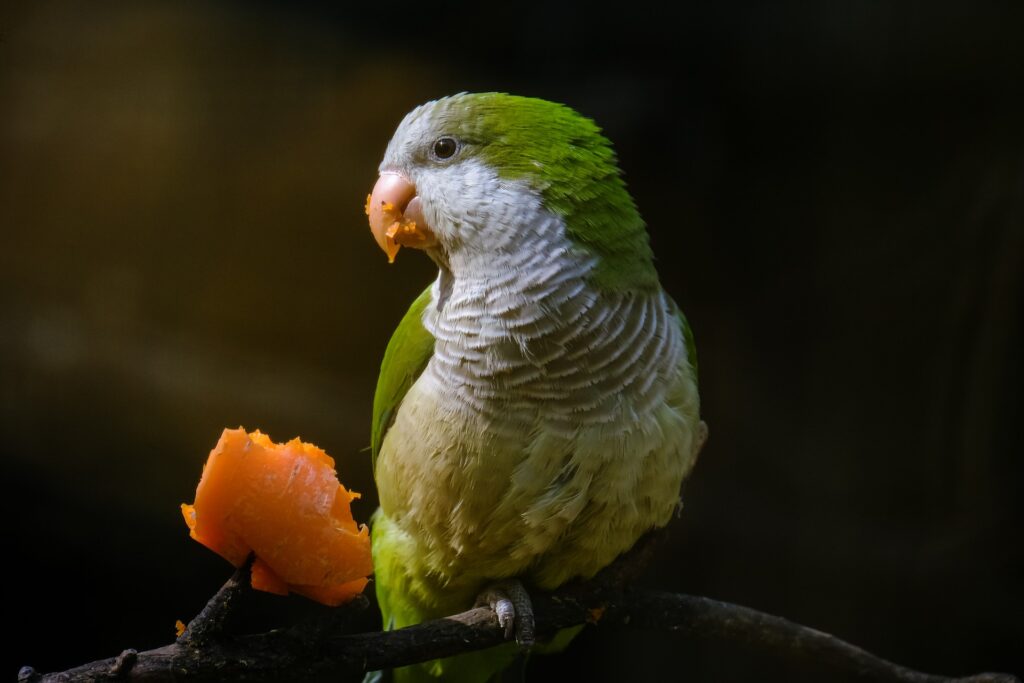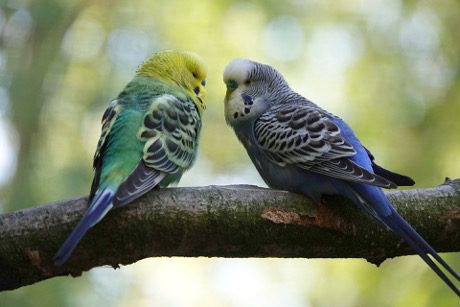Parakeets are members of the parrot family known as parakeets. They are native to Australia and are referred to as “budgies” or “budgerigars.” The origins of the name “budgie” are uncertain; however, it has deep roots in Australian culture. They weigh very little and are quite small birds. Although they have been developed to appear in various colors, their exceptionally long tail sets them apart.
Parakeets are social birds who like chirping, displaying love, going around other animals (including people) and exercising. Some parakeets can pick up other noises and replicate them, and pet parakeets have reportedly repeated more than 100 sounds made by their owners. While there is no assurance that your parakeet will “speak,” a select few other birds can be kept as pets and provide you with an opportunity with this enjoyable hobby.
Things To Know About Keeping Parakeets as Pets
Owning a parakeet may be highly gratifying and they make wonderful friends. But to provide them with a happy and healthy life and create a solid owner-parakeet link, it’s critical to comprehend how to provide for their wants.
Personality
Due to their friendly nature, parakeets demand a lot of company. A parakeet might not be the best companion if you spend a lot of time away from home, whether for business or travel. You may want to acquire more than one bird so they can enjoy each other’s company. Place the bird’s cage so it can see and hear you clearly, and chat with the bird. They are interested and will respond favorably to your conversations.
Life Span
A parakeet may be a real commitment; based on their precise species, general health and living conditions, such birds can live for 10 to 25 years or longer. As children may grow up and leave for college, leaving their parakeet behind, and because older parrot owners may wish to make sure their birds are cared for if they cannot do so themselves, parakeets are not always the best pets for young children.
Intelligence
Because they are intelligent birds, parakeets require enough mental engagement to prevent weariness and stress. Put a range of perches and toys in their cage, especially bells, mirrors and objects with unusual colors and patterns that the birds will find fascinating. Training sessions can assist parakeets in becoming more bonded to their human flock by teaching them tricks.
Space
Parakeets require enough room to move around, roost and avoid feeling cramped or confined. The cage size should be as big as your budget will allow, and the bars should have a good climbing surface that the birds cannot use to get stuck or escape. Place the cage next to where people are so the birds may interact with you, but avoid putting it in the kitchen because the cooking smells can harm birds.
Exercise
Even birds kept in cages need regular exercise, and parakeets will purposefully climb onto their perches and cage. They should have ample opportunity to run or roam outside their cage; eating and scaling hobbies will maintain their bills and talons in good condition. They will also require time to securely and safely practice using their flying muscles if their wings are not adjusted.
Diet
What do parakeets eat? There are many fruits parakeets can eat and many other things to get an adequate diet, and parakeets also require a diversified diet. The fundamental nourishment in the pellets sold in pet stores is good, but for proper nutrition and keeping the bird engaged in its food, seed, fruit and vegetables should be added. Your parakeet should constantly have access to fresh water.

NickyPe on Pixabay
Vocalizations
Parakeets can sing, chirp and even squawk like pet birds, making them noisy. They can mimic well, and certain species may even pick up new words or phrases. They might sing, including the music, or answer when you speak. A parakeet might not be ideal if you desire a quiet companion.
Temperature
Parakeets can usually tolerate most indoor temperatures; however, the birds may suffer if you have an extremely hot or extremely cold environment. Avoid placing their cage next to windows, vents or anywhere that will expose them to constant draughts or direct sunlight. Your bird will be more comfortable if the cage has a brooding box for shade and cover.
The Pros of Having Parakeets
- Loveable birds and parakeets lust after their owners’ attention.
- Families residing in tiny homes and apartments make ideal pet owners.
- An excellent option for households with young children and other animals.
- Due to their diminutive size, they can live comfortably in smaller cages.
- They make less trash than larger species, which makes cleaning their cages and surroundings simpler.
- Very inexpensive; parakeets tend to consume less food than larger parrots like the African Grey, so keepers will spend less on toys and other essentials.
- Naturally, you’ll need to purchase a cage for your parakeet (or any other pet bird), and the cage needs to be fully set up when you take your budgie home.
- Before making a purchase, do some studying and compare shops. The price of the bird itself will probably be matched by the cost of the cage for your parakeet.
- According to their inherently friendly personalities and lively nature, these small-to-medium sized birds make ideal family pets.
- The foods that parakeets eat are easy to find.
The Cons of Having Parakeets
- Do not assume that these parrots are silent because of their diminutive size. They do not squawk, but they can chirp continuously.
- Health is relatively fragile; even minor temperature changes can cause illness. Also prone to liver issues and malignancies.
- Frequent exercise is necessary to stay healthy and fend off disease and illness.
- The IQ of parakeets is not as high as that of a few of the larger species.
- Playful and intelligent parrots and parakeets are very well-liked as pets. Many chances to build a vocabulary of more than 100 words.
Conclusion
Do you want a parakeet as your pet bird? Are you still debating whether you want to get a pet bird? How much time you are ready to devote to training and connecting with your new partner depends on your existing lifestyle. Parakeets are the best choice for people and families searching for a little, sociable parrot, whereas if you are looking for larger parrots, you should most likely go with an African Grey or Macaw.


